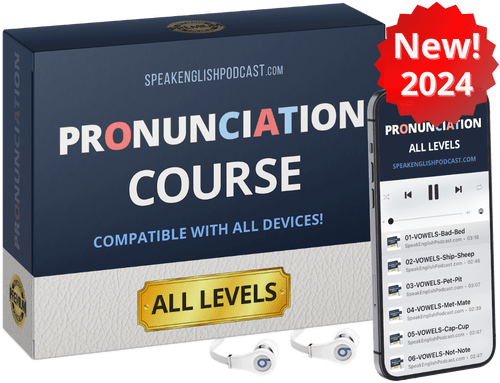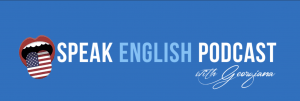Listen to a new episode of Speak English Now Podcast, your favorite material for practicing your spoken and heard English. You will also learn about lifestyle and culture, language, vocabulary and how to improve your English more effectively.
Transcript:
Hi everyone! I am Georgiana, founder of SpeakEnglishPodcast.com. My mission is to help you speak English fluently.
Hello, dear students, I hope you’re well. I am alright, and I have prepared a special episode for you.
– We will practice expressions and vocabulary related to the recommendations of health authorities on how to limit the spread of this global pandemic.
We will also practice fluency with a new mini-story by using the term “should,” among other structures.
As I’m sure you know, a global pandemic is affecting the health of many people and also our daily lives. I had planned to do another topic this week, but I think it’s worth talking about this instead so that we can learn and practice relevant vocabulary.
I thought it would be a good idea to review the indications and recommendations that health authorities give us to prevent the spread of the virus. So in today’s episode, we’re going to learn some useful and relevant stuff.
Before continuing, and as a disclaimer, the only purpose of the episode is to learn English, not give medical advice. Today’s episode is not intended as medical instruction or guidance. For any questions or concerns, please contact a doctor or the health authorities in your country.
Okay, now we continue 🙂
Wash your hands
I’m sure you’ve heard many times how important it is to wash your hands patiently. Apparently, you have to spend at least 20 seconds washing your hands. Yeah, I know 20 seconds seems like a lot, but you should do it just in case.
We have to wash every single finger and not forget the fingertips. It is especially important to wash regularly and particularly after coughing and sneezing.
Soap and water are the most effective. Alcohol-based disinfectant gels can also be used, but it is preferable to use soap instead.
Avoid touching your face.
I often touch my face without realizing it, and this is not good. We can become infected if we touch our face, especially when we have previously touched a contaminated surface. In particular, try not to touch your eyes, nose, or mouth. Some people have a habit of biting their nails. Please try not to do that. In any case, wash your hands.
Cover your mouth.
An important aspect when we sneeze or cough is to cover our mouth. A tissue is enough, but if we don’t have one, we can cough or sneeze into our sleeve. If we do this in the air, we will be releasing the virus into the same space the others are breathing. Therefore, we have to be cautious.
Keep your distance from other people.
Maintain a distance of at least 3 feet (0.91 m) from other people. If you or someone else is sneezing or coughing, you should keep even more distance.
As a matter of common sense, the less contact we have with other people, the better. Every country is taking similar measures, so we have to respect what the authorities say.
Wearing a mask
I think wearing a mask is important, but I’ve seen people walking down the street practically alone and wearing masks. You only need to wear a mask if you are caring for an infected person and if you have a cough or sneeze often. Remember that we have to combine this with the above measures. Ah! And remember to wash your hands before touching the mask.
When traveling
With everything that is happening, I recommend not to travel. Besides, there are so many controls, and some countries are even closing their borders. If you really need to travel, take some masks and gloves with you in case you need them. And try to cooperate with the police and all the airport staff.
These people are probably more tired than you are, so it is best to try to help by following their instructions.
When you cook
When we handle food, for example, when we prepare it before cooking, it is important to disinfect the surfaces where we put it. Also, clean all utensils, such as knives. And although it is obvious to remember… wash your hands before doing anything.
When should you seek medical attention?
Finally, if you have a fever, cough, and difficulty breathing, it is best to seek medical attention. Call as soon as possible.
Also, if you are over 60 years old and have cardiovascular disease, diabetes, or a respiratory condition, you should take the precautions described above and try to avoid spaces with other people.
I hope this lesson has been useful, especially for learning English. Hopefully, all this will pass soon, and we can get back to normality.
Let’s continue with a mini-story.
[END of EXTRACT]Get the FULL TEXT in PDF here.
Resources:
- Audio mp3 (right click to save the audio)
- FULL TEXT PDF (right-click to save the TEXT)



Hello my beast teacher Gorgiana and thank you for your awesome episode, which is so good for these days that the corona virus has become an epidemic every where . today i’ve been home for 15 days and haven’t gone out.I’m 71 years old i have to be very careful.i enjoy your episods and it helps me learn English alot.thank you very much for you efforts.i wish to be able speak english fluency. Unfortunately the prevalence of the crona virus has begun .be careful your self